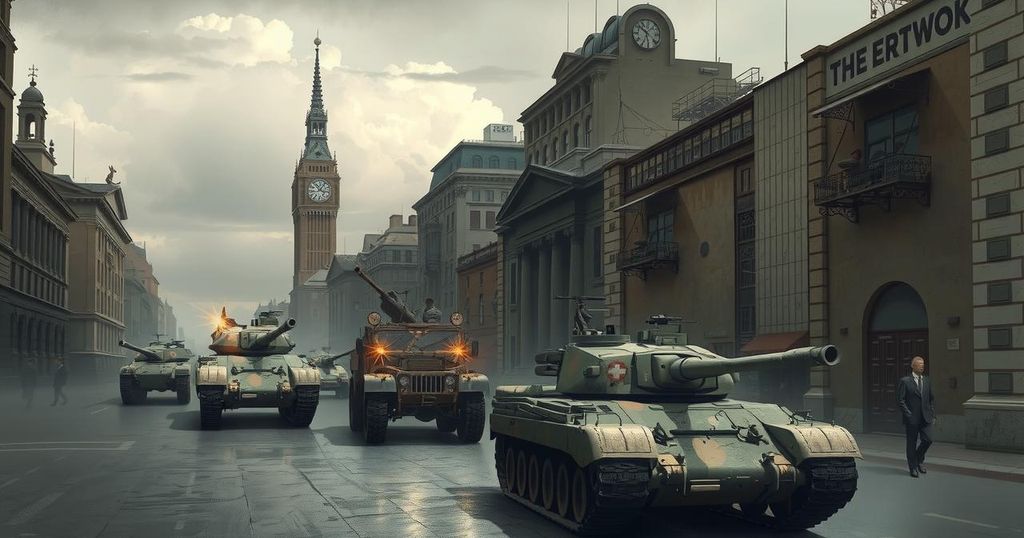Sudan’s Military Retakes Republican Palace Amid Ongoing Conflict with RSF
Sudan’s military claimed it retook the Republican Palace in Khartoum, the last stronghold of the rival paramilitary forces, after nearly two years of fighting. This marks a significant victory for the military under General Abdel-Fattah Burhan. Although the RSF has been expelled from the capital, they maintain control in other regions, while the humanitarian crisis deepens with rising civilian casualties and food shortages.
Sudan’s military has declared the retaking of the Republican Palace in Khartoum, the last stronghold of rival paramilitary forces, following nearly two years of intense conflict. Videos shared on social media depicted military personnel celebrating inside the palace on the 21st day of Ramadan, confirming their presence within this significant site. The palace, which suffered substantial damage, is historically linked to the nation’s governance and is featured prominently on currency and stamps.
Khaled al-Aiser, the information minister, announced the military’s achievement via the social platform X, stating, “Today the flag is raised, the palace is back and the journey continues until victory is complete.” This loss marks a significant advance for the Sudanese military under General Abdel-Fattah Burhan, as it expels the Rapid Support Forces (RSF) from the capital.
Despite this development, the RSF, led by General Mohammed Hamdan Dagalo, has not officially commented on the loss and continues to maintain territories elsewhere in Sudan. On the same day, the RSF claimed control of al-Maliha, a strategic city in North Darfur, although Sudan’s military has not confirmed the loss of the city. Al-Maliha is approximately 200 kilometers north of El Fasher, still under military control despite ongoing RSF assaults.
The ongoing conflict in Sudan has resulted in significant humanitarian crises, with claims indicating over 28,000 fatalities and millions displaced. Families are reported to be facing extreme food shortages, forcing some to resort to eating grass as famine conditions escalate in certain areas. The Republican Palace site holds historical significance as the locus of power during both British colonization and a symbol of Sudan’s independence since 1956.
In the wake of the military-led coup in 2021, conflict erupted between the RSF and the Sudanese military, leading to increased civilian casualties amid their clashes. General Burhan’s forces have made recent gains, including regaining a vital refinery and advancing towards RSF positions in the capital, aggravating the humanitarian situation. Both factions have faced accusations of human rights violations since the onset of hostilities, with the U.S. State Department previously labeling the RSF’s actions as genocidal before President Biden’s departure from office.
In conclusion, the Sudanese military’s recapture of the Republican Palace signifies a critical moment amid ongoing armed conflict with the Rapid Support Forces. Despite this military success, the humanitarian impact remains dire, with escalating violence contributing to a severe crisis affecting thousands. Repercussions of this struggle continue to shape the nation’s political landscape and the welfare of its citizens, underscoring the complex ramifications of the entrenched conflict in Sudan.
Original Source: apnews.com




Post Comment